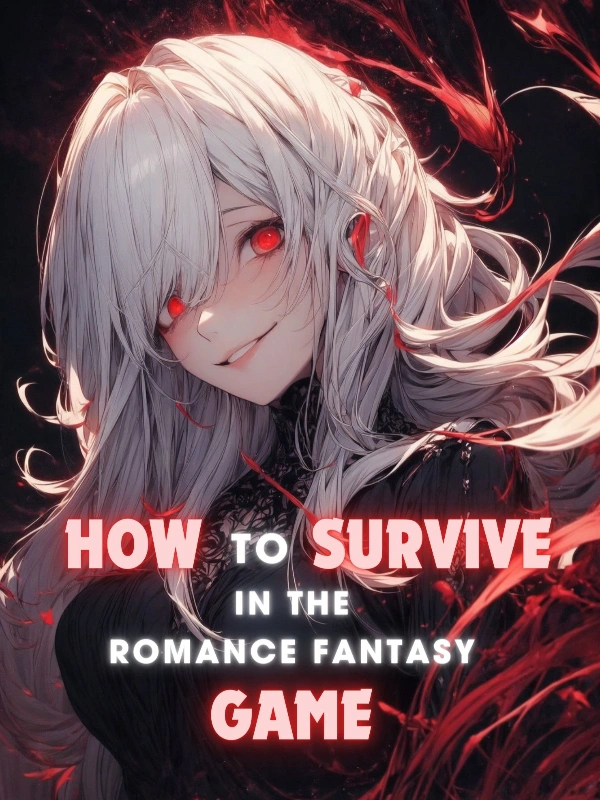Chapter 70: End and Beginning
Translated by Vine | Proofread by Lust
For the latest updates, visit: ProNovels.com
Join our Discord for release updates: https://discord.gg/Eh2ayfR4FB
< German Civil War – End and Beginning >
December 4, 1939
Northern Germany, Berlin
“Die! Die!”
“Argh! My leg!”
Even past midnight, the sounds of gunfire, screams, and shouts continued to echo through Berlin.
As Germans on both sides, consumed by the frenzy of battle, forgot why they were fighting, a broadcast began.
[Soldiers of the Wehrmacht and Waffen-SS, this is Lieutenant General Erwin Rommel, Chief of the Führer’s Security Detail.]
While it wasn’t the usual voice of Dr. Goebbels, everyone paused momentarily. Erwin Rommel was a hero, lauded by the Nazi regime for saving the Führer’s life from the rebels’ assassination attempt.
As the citizens of Berlin, the Nazi troops, and the Reichswehr held their breath, Rommel spoke again.
[The Führer of Germany, Adolf Hitler, is dead.]
“What?! What?!”
Walther von Reichenau, commander of the 10th Army, who had been directing the defense of Berlin for days, fueled by stimulants and chocolate, his eyes bloodshot, stared in disbelief.
[Before his death, the Führer ordered us to cease this senseless resistance and surrender to the New Government.]
“…Finally…”
As Chief of Staff Friedrich Paulus, standing beside Reichenau, sighed in relief, another voice, not Rommel’s, came over the loudspeaker.
[This is Colonel General Franz Halder, Chief of the General Staff of the Army High Command. I was present, and General Rommel’s words are true. By order of the Army High Command, all units are to cease this senseless resistance, which is only devastating Germany, and surrender.]
“That’s… That’s impossible…!”
Walther von Reichenau clutched his head and muttered to himself, then jumped to his feet, his eyes bloodshot.
“The Führer, who personally praised my loyalty just yesterday, would never order this! This is a mistake! Rommel and Halder, those bastards must have betrayed us!”
As Reichenau, enraged, stormed towards the door, a gunshot rang out, and he collapsed to the ground.
Friedrich Paulus, who had shot him, spoke to the officers who rushed into the room, staring in horror at Reichenau’s body,
“What are you waiting for? Inform all units to surrender. How long are you going to throw away your lives for a dead Bohemian corporal?”
–
For the Führer. Obeying orders as soldiers.
The desperate resistance, fueled by such flimsy justifications, crumbled with the Führer’s order to surrender.
Wehrmacht and Waffen-SS soldiers, who had been fighting from house to house, using civilians as human shields, began to emerge and surrender. With the Reichswehr High Command’s order to treat surrendering soldiers with respect, the frenzy of battle subsided.
“Fight! You cowards! Fight!”
Of course, there were those like Erich von dem Bach-Zelewski who, knowing they would be punished regardless, continued to call for resistance.
However, he was cut down by a gunshot to the back of the head.
“Hehe, hehehe. My apologies. I also want to live.”
Oskar Paul Dirlewanger, who had shot his superior officer, whom he had always disliked, grinned, but as he turned away, he saw his former subordinates staring at him with murderous intent.
“W-What, why are you… Urgh!”
“You used civilians as human shields and killed your own superior officer to save yourself?!”
“You’re worse than an animal!”
With the surrender, those who had abandoned their humanity, relying on the Nazi regime’s authority, were the first to face retribution from their former subordinates, comrades, or the citizens they had terrorized.
The German Civil War, which began on September 1, 1939, officially ended on the morning of December 4, 1939, after the broadcast by Erwin Rommel and Franz Halder, followed by the official announcement of Hitler’s death and the Nazi regime’s surrender by Wilhelm Keitel, Chief of the Armed Forces High Command.
–
December 7, 1939
Northern Germany, Berlin
Two days after the official end of the civil war, having completed the initial phase of post-war arrangements, the Reichswehr and the New Government officials entered Berlin from Frankfurt.
While the post-war process would take much longer, both my father and the Emperor believed it was important to return to the capital as soon as possible.
The citizens of Berlin and Prussia, traditionally more supportive of the Social Democrats than the Nazis, and disgusted by the Nazis’ use of civilians as human shields during the urban warfare, welcomed us enthusiastically.
“Hmm. Now this feels like Germany.”
I smiled wryly at my father’s nonchalant remark. This atmosphere of freedom was still unfamiliar to me.
“…We’re finally back.”
We had returned to Berlin, where it all began.
The cheering crowds, showering us with confetti, reminded me of the Austrians welcoming the Wehrmacht during the Anschluss and the Sudeten Germans during the Munich Agreement.
I closed my eyes, seeing the black, red, and gold flags replacing the somber swastikas on Berlin’s buildings.
The jubilant Reichswehr soldiers and the cheering crowds… This time, their joy was genuine, untainted by coercion or propaganda.
–
In an interview about Hitler’s death, Erwin Rommel claimed that Hitler hadn’t ordered a surrender, but instead, had ordered the demolition of the Reichstag, the Brandenburg Gate, and the New Reich Chancellery, and the execution of all imprisoned officers, which was why he had killed him.
While people were initially skeptical of his claims, Franz Halder’s confirmation and the general consensus that Hitler was indeed capable of such actions led to its official acceptance.
It was also a convenient narrative to solidify Hitler’s image as a villain and legitimize our actions, especially since he hadn’t yet committed the atrocities of the Holocaust in this timeline.
Rommel’s image, initially tainted by his close association with Hitler, was transformed overnight. He was now hailed as a hero who, despite the Führer’s favor, had chosen his country over his leader, saving Berlin and the lives of the imprisoned officers.
While he was still viewed with some suspicion within the Reichswehr, seen as an arrogant officer who had bypassed the War Academy and risen to prominence through Hitler’s favor, he had become, as in the original timeline, the most popular general among the public.
He was a shrewd operator, albeit in a different way than Manstein.
While we, especially Manstein and I, had initially intended to prosecute Franz Halder as a Nazi collaborator,
He had been spared a trial, thanks to Rommel’s testimony, which claimed that Halder’s agreement to falsify Hitler’s surrender order had led to the early end of the Battle of Berlin, saving countless lives.
Halder, resentful of Rommel’s newfound heroism while he was forced into retirement, protested the unfairness of it all, but his complaints were ignored.
–
December 8, 1939
Northern Germany, Berlin, Reichstag Building
We, the New Government, now the legitimate government of Germany, were holding our first meeting in the Reichstag building.
“We will retain the name Deutsches Reich. However, we will be considered the Fourth Reich internationally.”
No one objected to my father, Hjalmar Schacht’s, proposal. This Fourth Reich wasn’t a continuation of Hitler’s Third Reich.
It was the Fourth Reich, succeeding the Holy Roman Empire (considered the First Reich), the German Empire (the Second Reich), and the Weimar Republic (the Third Reich).
While Hitler had declared himself the Third Reich to delegitimize the Weimar Republic, we were the Fourth Reich, acknowledging the Weimar Republic’s legitimacy and rejecting Hitler’s Nazism.
Knowing that modern Germany in the 21st century would be sarcastically referred to as the Fourth Reich for its dominance within the EU, I couldn’t help but feel a sense of historical irony.
“The seizure of assets from those who collaborated excessively with the Nazis is proceeding smoothly. But what are we going to do with the buildings the Nazis erected in Berlin?”
Under the leadership of Finance Minister Konrad Adenauer, the assets amassed by the Nazis through corruption were being seized.
Perhaps driven by the bitter memory of his own assets being confiscated, Adenauer was relentlessly pursuing and seizing every Nazi asset he could find.
It was somewhat reminiscent of the Nazis themselves, who had funded their military buildup with confiscated assets and foreign treasuries.
Our treasury seemed to be filled more by the seized assets of Nazi collaborators and confiscated Nazi wealth than by tax revenue.
The sheer scale of the confiscated Nazi wealth was both exhilarating and alarming. If those madmen had been less corrupt, the Mefo bills wouldn’t have been such a problem.
“Let’s just remove the Nazi symbols and use the buildings as they are. We can’t afford to demolish and rebuild them.”
“Let’s just demolish the New Reich Chancellery. It’s an eyesore.”
As various opinions were voiced, I raised my hand, and everyone turned to look at me.
…Wow, the sudden silence and the focused attention was… unsettling.
“Let’s keep the New Reich Chancellery. We could turn it into a museum, documenting the Nazi atrocities and our civil war.”
“Must we…?”
The older members seemed uncomfortable with the idea of preserving a symbol of Germany’s shame.
“There are still those who support the Nazis. They might even remain after our generation is gone. It’s better to confront and remember our past than to try to hide it.”
Even modern Germany, with its thorough anti-Nazi education, still had neo-Nazis. Simply removing the buildings wouldn’t erase Nazism.
In fact, Germany’s post-war attempts to hide its past had led to a widespread perception, until the era of Willy Brandt, that they were merely a defeated nation, not perpetrators of horrific crimes.
Enjoying the translation? Stay updated with the latest chapters at ProNovels.com.
“I guarantee you, it will become a popular tourist attraction and generate considerable revenue. We need the money.”
“Well, that’s true.”
A dictator who rose to power seemingly overnight, plunging Europe into war, only to be cornered by the German people and ultimately killed by his own bodyguard after ordering the destruction of Berlin…
It was a dramatic story, as compelling as the original timeline. The New Reich Chancellery itself, despite its lack of functionality, was an imposing structure, perfect for a tourist attraction.
“Not a bad idea. We’re not going to burn their bodies and scatter the ashes, and demolition is expensive.”
Hitler and Goebbels’ bodies had been “disposed of,” and most of the key Nazi figures were either dead or missing. The only prominent Nazi awaiting trial was Göring.
With my father’s approval, the other members of the wartime cabinet readily agreed.
While the Nazi indoctrination system needed to be dismantled and the constitution, abused by the Nazis, needed to be revised, such reforms were postponed until after the elections.
Such matters were inevitably tied to ideology, so it was best to leave them for the elected government to decide. The next speaker was Defense Minister Ludwig Beck.
“The Italian front is progressing smoothly. With air support, we have pushed back the Italian forces, and most of Tyrol has been recaptured. It’s time to drive them out completely and launch a counteroffensive.”
The newly formed Army Group South, comprised of the Luftwaffe and the Reichswehr, was rapidly pushing back the Italians in Tyrol.
The Italian army, which had been stalled in Tyrol for a month and a half after their declaration of war, had nearly captured the entire region with their recent offensive, but they were now being routed by ten Reichswehr divisions with Luftwaffe support.
Of course, the Italian air force, still using biplanes as fighters, was being decimated by the Luftwaffe, which played a significant role in their defeat…
Still, they had at least twenty divisions on the ground. It was hard to believe they were performing so poorly.
“However, defending our territory and attacking enemy territory are two different matters. We need reinforcements to quickly defeat Italy with minimal casualties.”
That was the problem. While recapturing Tyrol had been relatively straightforward, an offensive would require more troops. And-
“…Has there been any response from Poland?”
“They are still deliberating.”
Foreign Minister Weizsäcker shook his head. The Poles were still stalling, even after the official end of the civil war.
“Perhaps their lack of action indicates they have no intention of attacking us?”
“Perhaps…”
If Poland had intended to attack us, they should have done so while the civil war was still raging.
But they had made no move, and they weren’t accepting our non-aggression pact either. What did this mean?
“Now that the 3rd Army in East Prussia has pledged its loyalty to the New Government, why don’t we station the former Wehrmacht’s Army Group North (3rd and 4th Armies) in the north as a precaution and deploy the rest of our forces to the Italian front?”
“Hmm…”
Stopping the Polish army with just Army Group North was impossible. It wasn’t just a matter of strength; the German-Polish border was simply too long.
But we couldn’t afford a prolonged war with Italy either.
“We will keep the disbanded 10th and 14th Armies as reserves and deploy all forces, except for Army Group North, to the Italian front.”
“…Understood.”
While I knew, logically, that this was the best course of action, I couldn’t shake off a feeling of unease.
“Still, our support for Finland has improved the new Germany’s international standing.”
Foreign Minister Weizsäcker looked at me with a proud expression.
Whether it was due to the equipment we provided or not, the Soviet Union was suffering heavy losses in Finland, unable to break through the Mannerheim Line.
Britain and France were about to pressure us to liberate Czechoslovakia, but Finland, after its initial success in the Winter War, had publicly announced our support.
While the Soviet Union, already embarrassed by its struggles in Finland, was understandably furious, international opinion favored Germany, which had aided Finland during its civil war, and Britain and France refrained from pressing the issue of Czechoslovakia, considering our ongoing war with Italy.
While Czechoslovakia would eventually have to be liberated, it was better to do so on our own terms, rather than under duress, so we had gained valuable time.
“Since we haven’t fully recaptured Austria, we should hold the elections after the referendum on Austria’s future. I trust you are all preparing for the elections and forming your respective parties.”
“Hahaha…”
The meeting concluded with my father’s remark. I could only hope my unease was unfounded.
< German Civil War – End and Beginning > End
ⓒ Carcassonne
For the latest updates, visit ProNovels.com. Join our Discord for release updates: https://discord.gg/Eh2ayfR4FB.




















